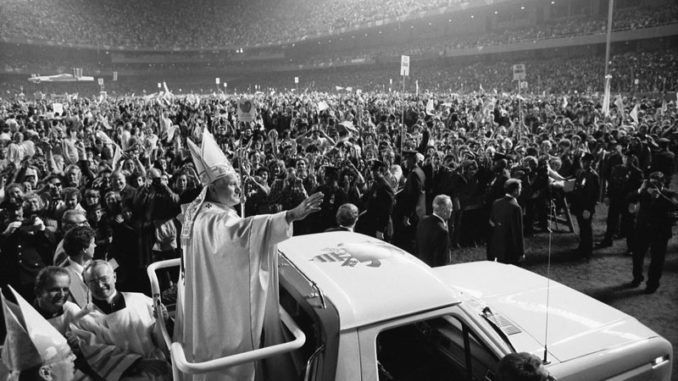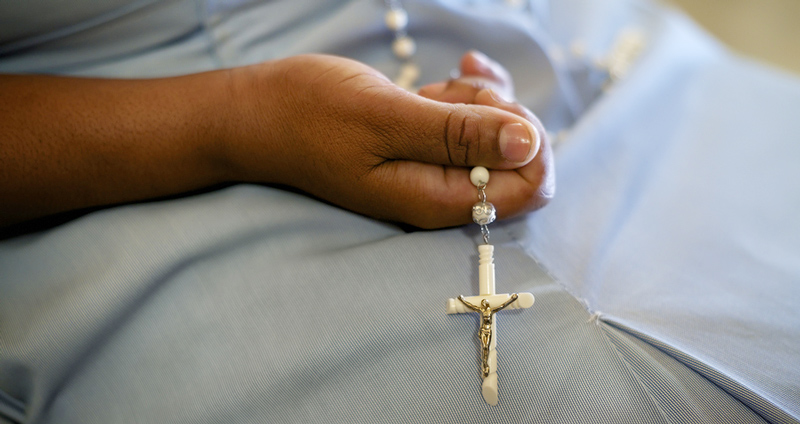
The 40th anniversary of the riveting visit of Pope St. John Paul II to Yankee Stadium was celebrated Oct. 2, with a reminder of the challenges he posed to affluent Americans. He was already a world class celebrity, even though not quite a year into his papacy. He charmed audiences and sometimes shook them. Americans were not the only ones he challenged, and his challenge continues long after his life span.
One of the insights he announced in his first encyclical, issued only five months after his election, is still a shock and a stirring call to action. St. John Paul chose the solemnity of St. Joseph to issue “Redemptor Hominis (The Redeemer of Man).” Not surprisingly it is about Jesus and the Church. What is startling is the proclamation that shows up in Article 14. “Man is the primary route that the Church must travel in fulfilling her mission,” says the Holy Father, adding in italics, “He is the primary and fundamental way for the Church.”
The statement is a bit of a brain teaser. We know that the Son of God announced himself as “the way, the truth, and the life.” We’ve learned that, before the followers of Christ were called Christian and a century or so later Catholic, they were simply referred to as The Way.
The likely conclusion for the believer is that Jesus himself is the Way and that the Church is the community which leads the way, while also finding and following the way as time goes on. So what does it mean to call man, the human person, the way?
As steeped in scripture and tradition as he was, John Paul was making a radical statement in the truest sense of the word. And he was inviting us to take him up on all its implications. His main theme is the way in which the humanity of the Son of God — his birth, his growing up, his mission, his gathering of disciples, his sacrificial death, and his resurrection — forever transformed what it means to be a human being.
During the decades of his papacy, the saint returned to this claim that “man is the way.” It was the basis for his emphasis on the sacredness of human life and his teachings about human dignity, human responsibility, human work, human family, and human solidarity. What he continued to call the Church to do — and that means all of us — is to advance any and all initiatives which can help people to realize who they truly are in Christ and because of Christ.
In some sense, it’s all about us. St. John Paul II was a theological and philosophical genius. His insights will be plumbed for generations to come. When he startles us by calling humanity “the way,” he pushes us to be sure that everything we do and everything we are is so focused that it “fully reveals man to himself and brings to light his most high calling.”
It’s not an invitation to inflated egos but to a realization that when we improve the human condition and grow human understanding we help more and more people see how we, now and forever, are partakers in the divine nature. It’s the way Jesus is.




